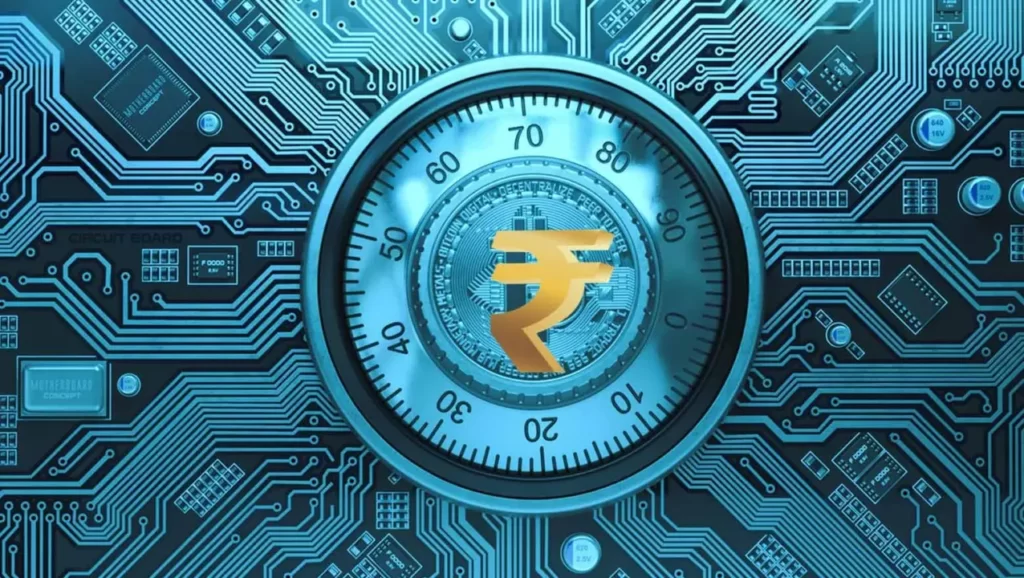The Impact of Digital Currency on the Indian Market: A Paradigm Shift in Financial Landscape

Introduction:
In recent years, digital currencies have emerged as a disruptive force in the global financial landscape. Led by the pioneering cryptocurrency Bitcoin, these decentralized digital assets have gained significant attention and adoption worldwide. India, as one of the fastest-growing economies with a burgeoning technology sector, has not remained untouched by this revolution. In this article, we will delve into the impact of digital currency on the Indian market and explore the various opportunities and challenges it presents.
Understanding Digital Currency:
Digital currency, also known as cryptocurrency, is a type of virtual or digital money that utilizes cryptographic technology for secure transactions and operates independently of traditional banking systems. Bitcoin, introduced in 2009, was the first digital currency, and since then, numerous others, such as Ethereum, Ripple, and Litecoin, have entered the market.
Impact on the Indian Market:
Financial Inclusion and Accessibility:
One of the significant advantages of digital currency is its potential to promote financial inclusion. In India, where a significant portion of the population remains unbanked or underbanked, digital currencies provide an opportunity for individuals to access financial services. Through digital wallets and peer-to-peer transactions, people can store, send, and receive funds, bridging the gap between traditional banking systems and the unbanked population.
Remittances and Cross-Border Transactions:
India is the world’s leading recipient of remittances, with millions of Indians working abroad and sending money back home. Digital currencies offer a faster and cheaper alternative to traditional remittance channels. By eliminating intermediaries and reducing transaction fees, cryptocurrencies facilitate seamless cross-border transactions, benefiting both the remitters and recipients.
Fostering Innovation and Startups:
The rise of digital currencies has sparked a wave of innovation, leading to the emergence of blockchain technology and decentralized applications (DApps). India, with its vibrant technology sector, has witnessed a surge in cryptocurrency startups and blockchain-based projects. These startups not only contribute to job creation but also drive technological advancements, positioning India as a hub for blockchain innovation.
Investments and Trading Opportunities:
Digital currencies have opened up new avenues for investment and trading in India. Cryptocurrency exchanges enable individuals to invest in various digital assets, diversifying their investment portfolios beyond traditional options. However, it is essential to note that the crypto market’s volatility and lack of regulations pose risks to investors, necessitating a cautious approach.
Challenges and Concerns:
Regulatory Uncertainty:
The Indian government has expressed concerns over the potential risks associated with cryptocurrencies, including money laundering, fraud, and market volatility. The regulatory landscape in India remains uncertain, with the Reserve Bank of India (RBI) prohibiting banks from dealing with cryptocurrency-related businesses. However, recent reports suggest that the government is considering a framework to regulate digital currencies while promoting innovation.
Consumer Protection and Security:
Digital currencies, while offering numerous benefits, also pose security risks. Cases of hacking, phishing, and scams have been reported, leading to financial losses for individuals. It is crucial to raise awareness among users about best practices for securing their digital assets and to implement robust security measures in cryptocurrency platforms.
Financial Stability and Monetary Policy:
The decentralized nature of digital currencies challenges traditional financial systems and raises concerns regarding monetary policy control and financial stability. Governments and central banks closely monitor cryptocurrencies’ impact on macroeconomic factors and seek to strike a balance between innovation and safeguarding financial stability.
Taxation and Legal Framework:
The taxation of digital currencies is a complex and evolving area. In India, the tax treatment of cryptocurrencies is still being clarified by the government. Additionally, the absence of a comprehensive legal framework for digital currencies creates uncertainty for businesses and investors, hindering their widespread adoption.
Conclusion:
Digital currencies have the potential to transform the Indian market by promoting financial inclusion, streamlining cross-border transactions, fostering innovation, and providing investment opportunities. However, challenges related to regulation, security, financial stability, and taxation need to be addressed for the industry to thrive. As India navigates this new financial landscape, policymakers, regulators, and industry stakeholders must collaborate to strike the right balance between harnessing the benefits of digital currencies and mitigating associated risks. With a forward-looking approach and effective regulations, India can position itself as a global leader in the digital currency space, driving economic growth and financial empowerment for its citizens.

